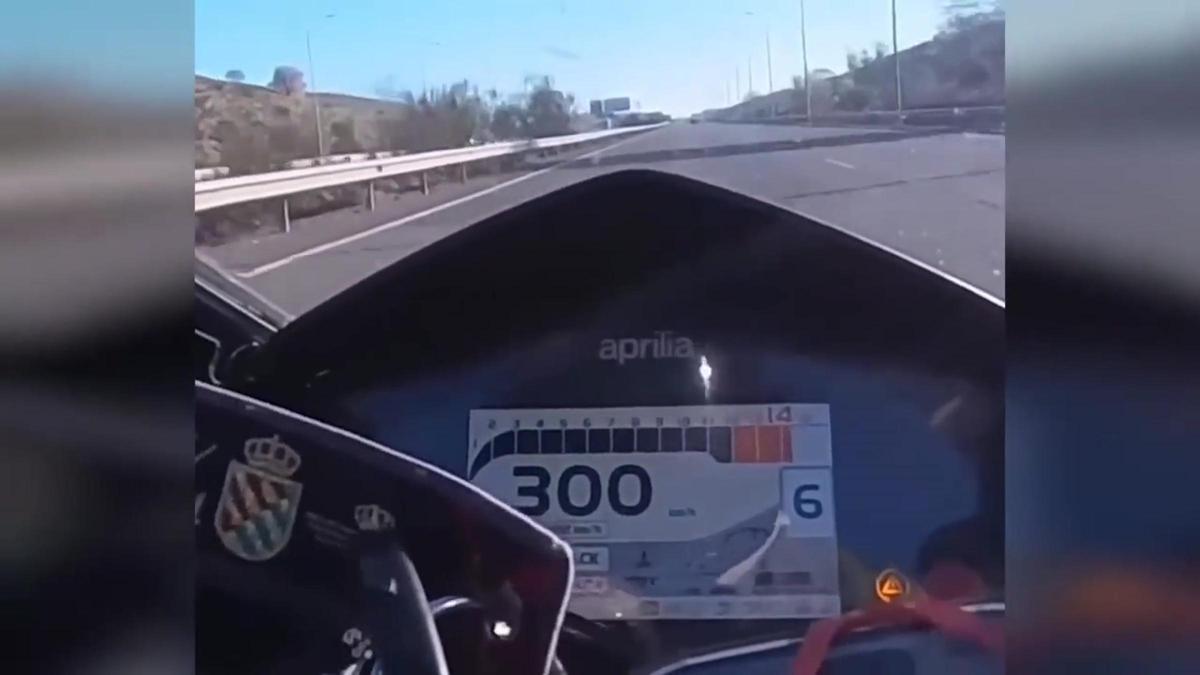-It surprised us all because It is not a regulation, it is a prohibition. That is the nuance and the rise of tone. The initial discourse was that there would be a regulation that would generate certainties and would be accompanied by a deep debate in the educational community. And it has not been an open regulation, but rather a very restrictive one, nor has there been a great debate in the educational community. The measure has been welcomed by some centers that were overwhelmed, but many had already made a living.
“If the school does not educate on mobile phones, Elon Musk will”
-There are centers that had it regulated, but in a more flexible way, allowing you to consult it in the patio, for example.
-Yes, and now it will be prohibited in the patio.
Just because there are no mobile phones does not mean that the patio is magically of better quality.
-Don’t you see it relevant?
-I think it’s a good debate. The patio is an environment of opportunity and risk. It is a moment of lack of control, therefore, more open to risks, but just because there are no cell phones does not mean that it is of better quality by magic. Playgrounds are also educational spaces and, unfortunately, we have some very immature playground projects. The patio is not just ‘I get out of class, I let off steam and I have a sandwich.’ Should we prohibit cell phones? Very good, but what is the alternative? Do we throw the ball at them and let them play soccer or do we take advantage of it as an educational space where things happen, where we learn, where we interact? What some centers have done is ban cell phones, but they offer table tennis, open the school library…
We see many adults who walk down the street looking at their cell phones and do not look their children in the eyes.
-There are centers that offered these alternatives before prohibiting them.
-Young people say it: ‘I look at my cell phone when I feel lonely and bored.’ And that is a very powerful message. Because either we judge them from the adult-centric perspective of ‘they are addicts and we have to unhook them and that’s it’ (and José Ramón Ubieto already says it, ‘they are not addicts, they are lovers’) or we consider that it is our responsibility to accompany them and give them educational alternatives. . If it makes us comfortable as a society to prohibit it, let’s do it, but as a first step to start doing things. Half of Catalan schools do not have a school library. I have a bare yard, the library is closed… what do I do? And the same thing happens at home. We see many adults walking down the street looking at their cell phones and not looking their children in the eyes. The ban is a patch on a social challenge that goes far beyond school and is much broader than mobile phones.
The ban is a patch on a social challenge that goes far beyond school and is much broader than mobile phones.
-It is a patch, but something had to be done until a deeper change occurs like the one that the families organized in the ‘Adolescència lliure de mòbils’ movement are trying to promote.
-It is very healthy that these voices have come out, but these families, in reality, are the ones that have the least problems with cell phones. Because they are aware; They are middle class families who accompany and regulate at home… What worries us are the environments of poverty, and that transcends the capacity of the school.
-The paradigm of the digital divide has changed. Before it was between those who have or do not have access to the internet, and now between those who have or do not have support in that access.
-The real gap is whether the digital context generates opportunities or exposes you to risks. And the most vulnerable layers bear the brunt: misinformation, harassment, loneliness… especially in homes, where the most worrying situations occur.
-In fact, the time outside of school is much longer than the time they spend in it.
-And not only that. At school you are doing something. The problem at home is that it is a very prolonged and continuous exposure, not supervised and with an open bar of content, and that is where the great risk is. Teachers can act as police, but when they leave school they are hooked for hours and hours, they don’t sleep, they come to class tired, they have created groups with toxic dynamics… and that is something that surpasses them, no matter how much they have it regulated or prohibited. .
-Is the ban against equity?
-Sends a negative message to society. For many years there has been a very techno-optimistic message: ‘if we fill the classrooms with machines we will have better digital literacy and more opportunities’, something that is false. We know that having technology does not correlate with educational results, far from it. But now it seems that we have turned the wheel to the other extreme. Even in the instruction it says ‘reduce mobile phone use to a minimum’. Which is fine with me, since it’s rarely a learning tool; but it sends a very negative message towards technology, and I understand that it is disconcerting considering the policies of recent years.
The classes are full of tablets and laptops on which they can open TikTok, and where ChatGPT can do their homework
-The mobile phone is not the only screen in the classroom. In fact, the laptops offered by the Department itself also serve to use the vast majority of applications…
-Exact. The classes are full of tablets and laptops on which they can open TikTok, and where ChatGPT can do their homework. The thing about mobile phones is a small patch to a social demand, to a global and state political context of ‘let’s see who bans it first’.
-But that same technology also allows you to do the work that you could do with your mobile phone, with tablets, for example…
-The tablets are a scam. Who uses them today? As an educational tool it is very questionable. A laptop is much more constructive, in the end a tablet is designed to consume, not to produce, it does not have a keyboard. Educationally he is very poor. On the other hand, a laptop allows you to program, create content… It is much more interesting to work with your mobile or work with a laptop than with a tablet.
We can neither get drunk on technology and believe that it will fix everything for us, nor prohibit it and see it as an enemy.
-A cell phone doesn’t have a keyboard either…
-Yes, but it is a social reality. We can accept it, not accept it, question it, protect the centers from this reality, but it is their reality; On the other hand, no one uses tablets.
-What do we do now with all the millions invested in them?
-There has been a technological binge here, after the pandemic. A very rapid acceleration without time for teachers to digest it and find pedagogical meaning. We cannot either get drunk on technology and believe that it will fix everything for us, nor prohibit it and see it as an enemy. We have to find a balance in uses and see what space technology should have in pedagogy. Now it has happened with the mobile, but it can happen briefly with other screens.
-Do you think it will happen?
-You can pass. Because what worries us about the mobile phone is also on the computer. Banning cell phones in the school environment is a very small part of a much larger movie. Either we lead good critical digital literacy from school or Google or Elon Musk will do it.
This smokescreen of prohibition gives us false assurance that everything will be fine.
-Is the big challenge now the fight against ‘fake news’?
-It is one thing to approve a ban, develop some resources and share them on a website. But that doesn’t mean that it reaches everyone or that things happen. This requires deep leadership and being clear about the digitalization model that Catalonia wants, and the educational community now does not know it. The ban does not solve the underlying problem, which is that the digital age questions the way we accompany our children. Digital is real. We question how we relate as people. What is the student’s motivation to learn? Do you look at your cell phone because you are addicted or because you feel lonely, sad and bored? This smokescreen of prohibition gives us false assurance that it will be fine; but the problem is that almost half of adolescents are watching content linked to suicide. We have to distance ourselves and not be so reactive.
There has been a great rush to digitize and now a message of fear is being sent; Catalonia does not know where it is going
-In your eyes, what should be the path?
-We will have to configure classrooms as spaces in which technology is more invisible and much more reasonable. Surely we need technology at specific times, with pedagogical thinking that is founded, reflected on and shared as a faculty. The disconcerting message is that there has been a rush to digitize and now a message of fear has been sent. Catalonia now does not know where it is going.
-But until recently it seemed like they were convinced.
-Or dazzled. Technology is very sweet. You fill a classroom with screens, hold open days and explain that you are innovative and incorporate the latest technology….
-That used to ‘sell’, but now I doubt it.
-Now that it’s full! Now the opposite can happen, where the screens have to be covered with a blanket in open doors. That in two or three years we will be subjected to these contradictions is very hard. In terms of public investment as well.
-A lot.
-The school has to provide answers to the challenges of this world; It has to be a living space connected to reality; You have to understand it, question it and transform it. If not, we will either become technological snobbery, which is what we had before, or protectionist technophobia. We cannot prohibit cell phones as if they were cocaine.
–I was talking before about libraries. Banning cell phones is free but libraries cost money.
-In Galicia they have a school library plan that has been in operation for 20 years, which gives results, incorporates technologies and costs 4 million a year. How much money has Catalonia spent on tablets? It’s not money, it’s political will and courage.



